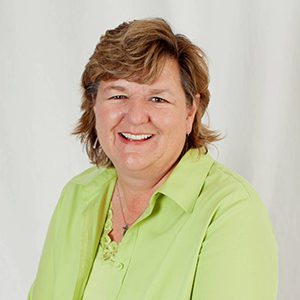Rashes on babies and young children are incredibly common. Still, you may be asking, ‘Should I be worried about a rash?” Often due to exposure to new things, some rashes can appear much worse than others.
For a parent, a rash can be frightening, especially if it’s unclear what caused it or what other implications it may bring. To help you navigate your baby’s rash and know when you should contact your healthcare provider, here are some helpful insights.
For Newborns and Young Children
If you have a baby less than 1 month of age with a fever greater than 100.4 Fahrenheit, you should make an appointment
For newborns, the most common rash has a scary name — erythema toxicum — but it is not worrisome. It appears on day 2 or 3 of life and looks like ½” red blotches anywhere on the body. If it looks more like blisters your baby should be seen in the office
Birthmarks often are not present at birth. Stork bites are flat red birthmarks often at the nape of the neck or across the eyelids. These will fade with time. Brown or blue birthmarks appear later and last lifelong. These are good skin changes to point out at your child’s routine well visit so they can be documented but don’t require a special office visit.
Many children under 3 will have 3 days of fever followed by a fine red rash appearing on the trunk at which point they are already feeling well. This is often roseola, a viral rash of no consequence, and does not require an office visit.
Diaper rashes that don’t respond to your usual home treatment should be seen.
Heat rash is also common and does not need to be seen. It usually looks like small pink bumps on warm areas such as the chest, back, and neck. Try to keep that area cool and use a soothing lotion.
For Older Children
Older children can sometimes get a rash when they have strep throat. Often referred to as scarlet fever, this is a sandpapery feeling, red rash on the trunk. It’s often accompanied by fever and sometimes by sore throat. Your child should have an office appointment.
Many children have dry skin commonly referred to as eczema or atopic dermatitis. Oftentimes this dry skin appears in the elbow crease or behind the knees or ears. Liberal use of unscented lotion should help. Sometimes, however, this dry skin even appears in circular outbreaks called nummular eczema. This is much more common than ringworm and if it does not improve with good moisturizing, we should see it.
Most adolescents have acne. There are many non-prescription products that provide good treatment. The Youth Clinic providers are happy to discuss options with parents and their adolescents during an office visit for this concern or during a routine well visit.
General Rules of Thumb
Below are some instances where you should schedule an office visit for your child’s rash to be evaluated and treated.
- Rashes that look like bruises below the waist, either very tiny or large blotches
- If the rash looks like yellow crusts or open sores
- If the rash is solid red, enlarging, and hurts and your child feels ill
- If your child is on a new medication and a rash begins
- If your child has a rash that is extremely itchy
Should I be Worried about a Rash? We can Help
At The Youth Clinic, we want you to have peace of mind when it comes to the health of your child. You shouldn’t have to be worried about a rash. Schedule an appointment with one of our providers to make sure your child’s rash is properly treated. If you’re unsure if your child needs to be seen, leave a message for a provider or speak to one of our phone nurses to help sort out if your child needs an office visit.
About the Author
Lorrie Kehmeier, PA-C
 Lorrie K. Kehmeier, PA-C, has been with The Youth Clinic since 1987. Before joining The Youth Clinic, Lorrie attended Colorado State University where she received her Bachelor’s Degree. She then obtained her Master’s Degree in Child Health from the University of Colorado Health Sciences Center.
Lorrie K. Kehmeier, PA-C, has been with The Youth Clinic since 1987. Before joining The Youth Clinic, Lorrie attended Colorado State University where she received her Bachelor’s Degree. She then obtained her Master’s Degree in Child Health from the University of Colorado Health Sciences Center.
Lorrie is licensed by the State of Colorado and certified by the National Commission on Certification of Physician Assistants. She is a Clinical Progressor of Pediatrics at the University of Colorado at Denver Health Sciences Center.
When she isn’t watching her patients grow and change as they age, Lorrie enjoys reading and spending time with her adult children.


